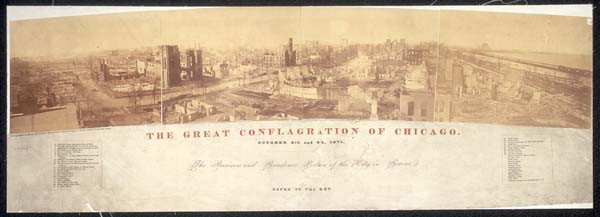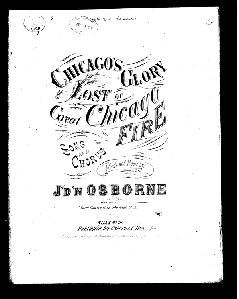Image Analysis:
1. When and where was this image created?
2. What is happening in this image?
3. What specific people/objects do you see?
4. What do you notice about the object's condition or the people's expressions
or appearance?
5. Why would the person choose this particular scene to capture?
6. What information do the words accompanying the image provide?
7. What does the image NOT show that you would be interested in seeing?
8. What problems for people are suggested by the images?
9. What is interesting or surprising about this image?
10. What additional information about the event did you learn from
this image?
Personal Account Analysis:
1. When and where did this interview take place?
2. What encounter with nature is described in this personal account?
3. How long after the event occurred was this inteview made?
4. What words or phrases do you think best create a visual image
of the event?
5. What attitude towards this event does the person seem to have?
6. Who or what does this person seem to believe is responsible
for this event occurring?
7. What effects does the event seem to have had on people's lives?
8. What lesson does this person seem to have learned from this
event?
9. Is there anything interesting or surprising to you about this person's
reaction to the situation?
10. What new insights into the natural event does this interview provide
you?
Lyrics Analysis:
1. If there is a cover to this piece of sheet music, examine it carefully.
What message does the cover give you about the event?
2. What natural event is this song about?
3. Read through the lyrics. Write a summary describing the main
idea of the song.
4. List any words in the song with which you are not familiar. Find
their meanings in a dictionary.
5. Choose one or two phrases of the song that are interesting to you.
Explain why they caught your attention.
6. Who or what does the song writer feel is responsible for the event?
7. What problems or effects of the event are mentioned in the song?
8. What new insights does this song give you about the event described?
9. What surprises you about the song?
10. What questions do you have?
Additional Resources:
1. What additional information about the event did the other sources
provide?
|

Chicago,
as seen after the great conflagration, embracing the whole of the burned
district as seen from an elevation in the southern boundary thereof.
c1871
Taking
the Long View: Panoramic Photographs, 1851-1991, Library of Congress
Personal Account:
Title: Pack on my back
Place of origin: Illinois
Date: 1937/40
How did I happen to become a peddler? When I came to Chicago in 1870,
there was nothing else to do. I was eighteen years old. I had learned no
trade in Russia. The easiest thing to do was to peddle.
I went to live with an aunt and uncle when I first came to Chicago.
They lived in a small four room house on Fourth Avenue. (Federal Street
today) They had four children but they managed to rent one room to two
roomers. I shared the bed with these two men.
The day after I got to Chicago my uncle asked me if I had any money.
I told him I had ten dollars. He told me to invest it in dry goods and
start peddling. I peddled in Chicago till after the fire of 1871. There
were not many stores, so I had no trouble selling my goods. I used to make
from six to ten dollars a week. I paid my aunt three dollars a week for
my food and lodging and the rest I saved. I had the responsibility of bringing
my father, two sisters and two brothers to America.
It was the great fire of 1871 that made me a country peddler. Oh, yes!
I remember the fire very well. It was in October. We used to go to bed
early because the two roomers had to go to work very early. We were getting
ready to go to bed, when we heard the fire bells ringing. I asked the two
men if they wanted to see where the fire was.
"Why should I care where the fire is," one of the men said. "As long
as our house is not on fire, I don't care what house is burning. There
is a fire every Monday and Thursday in Chicago."
But I wanted to see the fire. So I went out into the street. I saw the
flames across the river. But I thought that since the river was between
the fire and our house, there was nothing to worry about. I went into the
house and went to bed.
The next thing I knew my two bed-fellows were shaking me. "Get up,"
they cried. "The whole city is on fire! Save your things! We are going
to Lincoln Park."
I jumped out of bed and pulled on my pants. Everybody in the house was
trying to save as much as possible. I tied my clothes in a sheet. With
my clothes under my arm and my pack on my back, I left the house with the
rest of the family. Everybody was running north. People were carrying all
kinds of crazy things. A woman was carrying a pot of soup, which was spilling
all over her dress. People were carrying cats, dogs and goats. In the great
excitement people saved worthless things and left behind good things. I
saw a woman carrying a big frame in which was framed her wedding veil and
wreath. She said it would have been bad luck to leave it behind.
When we came to Lake Street I saw all the wagons of Marshall Field and
Company lined up in front of their place of business. (The firm was then
called Field and Company) Man and boys were carrying the goods out of the
building and loading everything into the wagons. The merchandise was taken
to the street-car barns on State near Twentieth Street. I am sure that
Marshall Field must have been one of the owners of the street-car company.
Otherwise why would the street-car people have allowed him to bring his
goods there. A
couple of weeks later, Marshall Field started doing business in the
car-barns. I remember buying some goods there.
No one slept that night. People gathered on the streets and all kinds
of reasons were given for the fire. I stood near a minister. He was talking
to a group of men. He said the fire was sent by God as a warning that the
people were wicked. He said there were too many saloons in Chicago. There
were too many houses of prostitution. A woman who heard this said that
since the fire started in a barn it was a
direct warning from God. She said Jesus was also born in a barn. I
talked to a man who lived next door to Mrs. O'Leary, and he old me that
the fire started in Mrs. O'Leary's barn. She went out to milk the cow when
it was begining to get dark. She took a lamp with her and the cow kicked
the lamp over and that's how the fire started. There were all kinds of
songs made up about the fire. Years after the fire, people were still singing
songs about it. You remember the song "Hot Time in the Old Town," well
there was a song made up to that
tune. These are the words:
"One moonlight night while the
families were in bed,
Mrs. O'Leary took a lantern to
the shed,
The cow kicked it over winked
her eye and said:
There'll be a hot time in the
old town tonight, my baby."
As may of the hopes were burned, many people left the city. Some went
to live with relatives in other cities. A great many men became country
peddlers. There were thousands of man walking from farm to farm with heavy
packs on their books. These peddlers carried all kinds of merchandise.
Things that they thought the farmers and their families could use.
Source
document (complete text)
American
Life Histories: Manuscripts from the Federal Writers' Project, 1936-1940,
Library of Congress
Lyrics:

Chicago's Glory Lost or Great Chicago Fire
Chicago! Chicago! The pride of the west.
With temples and palaces are thou surely blest.
Where elaborate structures and domes towered high
To display to the world as its children pass'd by
The wonders of art wrought by man's strong arm
Also rich trophies thou hadst placed there to charm
And fortune amassed in a moment of time
Thus alluring the natives of every clime.
Bu the flames gushe'd forth and the smoke rose high
A a dread lurid glare was seen in the sky.
A fire arose more terrific and grand
Than ever was seen in American land.
Where now shall we turn on all these to gaze
Since the fiend of destruction with sapphire blaze
Wrapt its mantle of scarlet with noble attire
O'er the palace, o'er arch, o'er column and spire?
When the high winds above with a terrible roar
Did fan the flames and down the street did pour
A volley of cinders with fire and heat
To render the scene with horror complete.
Chicago's
glory lost, or Great Chicago fire / by Judson Osborne.
Osborne,
Judson.
Niles,
MI: Osborne & Brothers, 1872.
Music
for the Nation: American Sheet Music, 1870-1885, Library of Congress
Other Resources:
Chicago Historical
Society Nineteenth
Century Description Nineteenth
Century Description
Back to Nature's Fury Home Page
Nature's Fury web pages published and maintained by P.
Solfest and K. Wardean
E-mail comments welcome at:
psolfest@altoona.k12.wi.us
kwardean@altoona.k12.wi.us
|
|


